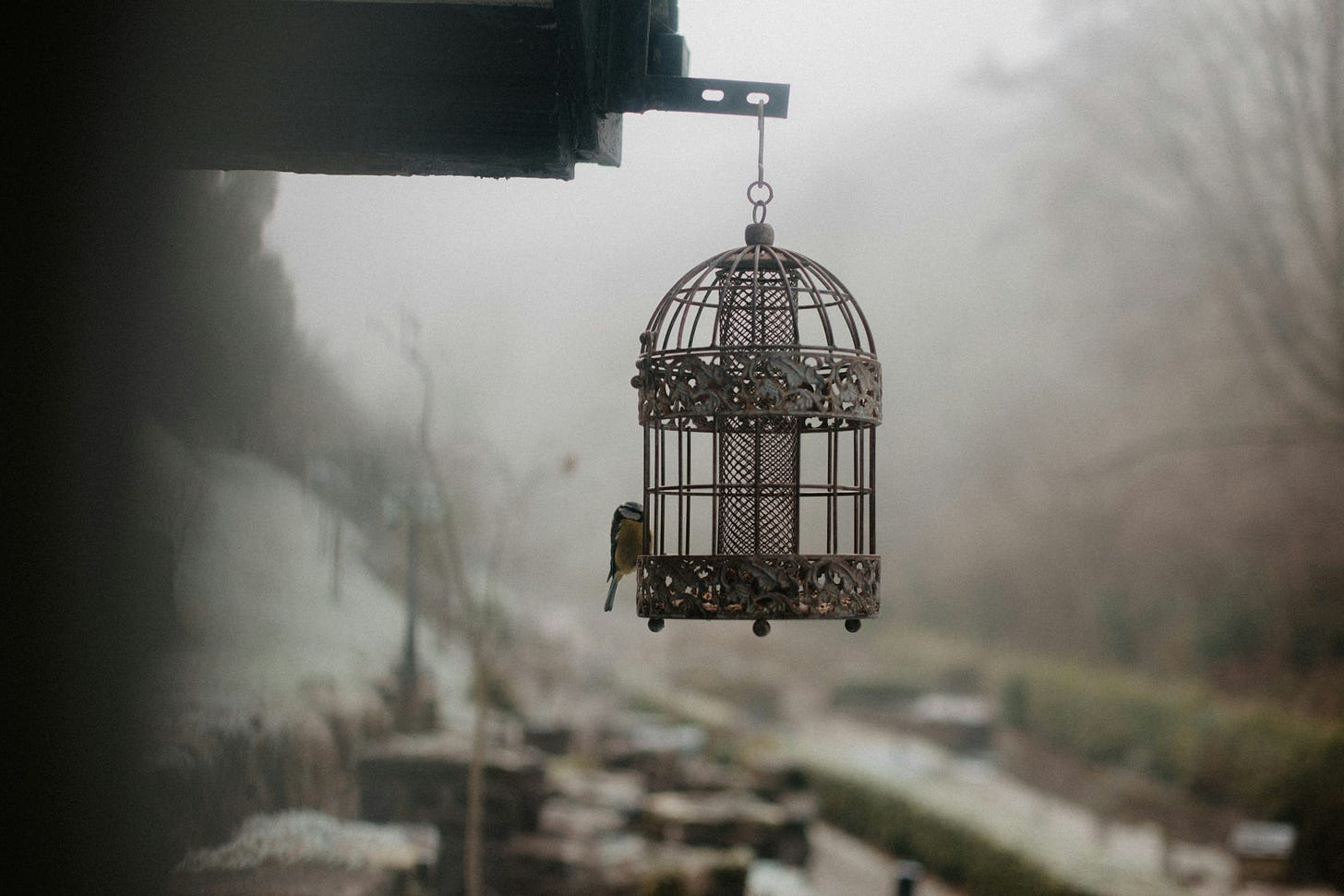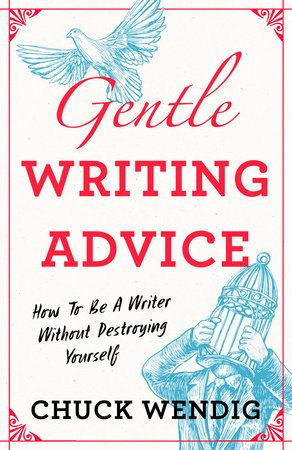This post is part of Art & Craft, my series that reviews books about writing books.
Ever write a tweet so bad that someone else writes an entire book in response? That’s how the world ended up with Chuck Wendig’s Gentle Writing Advice. See the introduction for more spicy details.
Why I chose this book
I almost passed on this audience recommendation, because it’s not at all like the other books I’ve reviewed. I’ll go further: it’s so unlike other craft books, it may not be a craft book at all. I would almost describe it as self-help, a little comfort for the struggling creative soul. But, as DongWon Song wrote in their most recent update to publishingishard.com: “You don’t need suffering to make great art. Art is rooted in curiosity, in exploration, and in empathy.”
Unfortunately, we are making art in reality. And reality is known for being a ruthless place where we experience loss, devastating obstacles, and damage. And forcing arbitrary writing “rules” onto ourselves and each other may perpetuate this curse of reality upon writers who are simply trying to create something to improve this existence.
So maybe Gentle Writing Advice is foundational. Prerequisite. Perhaps it is the craft book, the one which makes it possible to keep going and achieve what other craft books describe.
The highlights
Gentle Writing Advice is short and approachable. You could read it in an afternoon, perhaps in the Lush bombed-bath, which (despite being a terrible example of self care) is this over-touched mom’s idea of a really good time. So to avoid entirely summarizing and spoiling all of the excellent takes, I’ll share only a few of my favorite themes:
Treat yourself like someone you're responsible for
I think (hope… pray…) we all realize self-care has nothing to do with pampering and everything to do with making sure you survive and (maaaaybe even thrive—a little?). But I feel like it’s especially easy for writers to forget this, or at least struggle to live it out. Wendig explores this with what I believe is a reference to Roosevelt’s “Man in the Arena” metaphor: “Self-care is not avoiding the arena entirely. Self-care is going in with the best sword and strongest armor you can muster.” [page 35]
If it sustains you, makes you stronger, and helps you heal, then it’s self-care. So it’s really not optional. It’s truly the opposite of an indulgence or an excuse. Because God knows we need sustainable, strong, healthy writers in the scarred and scrappy SFF community.
Take a little pressure off
Speaking of SFF, one of my favorite things about genre is its ability to give us new versions of something familiar. It’s a beautiful paradox, a delicate balance that’s difficult to achieve with certainty. Because when you’re writing how do you know that your story will be relevant, but not derivative? Unique, but also marketable? Novel and interesting, but also a definite fit for readers of LMNOPQRS? Maybe you pitch it and get good reactions, or maybe you don’t because pitching and writing are two entirely different skills.
But Wendig genuinely assured me in this area: the best we can do is write what we like. We should forgo the obsession with the hooky high-concept if it’s not our forte. Because:
We’re all using the same colors. There’s not going to be a new color… Stories are meant to reflect our experiences, to contextualize our feelings and anxieties and build an empathetic bridge between writer and reader. We are meant to write about extant things because that’s why people care. Fiction helps them see themselves, and others, and the world around that binds or divides us. [page 80]
Exhale. I am guilty of terrible self-rejection, not just in submissions, but at the idea-level. I too often forget that what causes someone to be lost in a book is the sensation of wonder, curiosity, and empathy. And it’s hard to force such magic from a brain that’s burnt and stressed and anxious.
I wish I wrote my last book faster, and I was ashamed to realize I’ve been working on this novel for more than a year already. But that shame won’t improve the book or my life. So I was delighted when Chuck Wendig alluded to the same idea I toyed with in the end of my Wonderbook review: “Writing is work… but what if, and I’m just spitballing here—Writing was play too? …a pile of LEGO bricks? A tasting menu of foods you’ve never had? A forest with a trail you’ve never walked before?” [page 155-156]
Whatever you do, don’t forget to enjoy your own story.
There’s no control, only confidence
And finally, if you’re wondering whether you and your work belong anywhere at all, please enjoy the best page in the book, the finest overview of this whole industry you’ll ever read:
There is no such thing as objectively good.
And if there is no such thing as objectively good, then we have a very hard time repeating a creative process that ensures equivalent results every time.
Now this doesn’t mean there are not experts, to some degree. The people in publishing—generally speaking—are experts in their fields. Many writers are very well practiced at what they do and have a strong grasp of what goes into telling a good story. Booksellers and librarians are often very, very good at their jobs.
And yet—
None of them can really know what they’re doing. And by “know” I mean, “are 100 percent certain.”
By which I mean cannot predict what book will be an absolute bestseller. They are guessing. They are guessing in a way that is born of great expertise, to be clear. It’s not just punching in the dark. They are acting on a wealth of experience and listening to a chorus of their own intestinal flora that has long been cultivated by that experience. Just as many writers are listening to the same kind of colonic wisdom born of a well-trained, instinct-honored gut.
Consider:
An agent will represent an author and try to sell that author’s book.
One editor may publish it, and the rest may reject it.
Was that one editor right and the others all wrong?
Why, if everyone in publishing knows exactly what they are doing, would this not be fully repeatable? Why would they all not have made an offer?
…Because nobody really knows what they’re doing.
We’re all just guessing. [pages 174-175]
The cringe
Overall I appreciated the tone in the depths of this book, which reveals the author’s empathy and understanding of the difficult and truly subjective nature of each writer’s life.
The tone on the surface, however, kept tripping me. The jokes, similes, and CAPS LOCK habit felt a bit like cilantro—amazing in plenty of dishes but easily overpowering. Much of this superfluous snark is relegated to the footnotes, fortunately, which made it easy to skim or even skip. Though I was warmed and encouraged, I was also incredibly distracted. No offense, Chuck.
Star-ratings
How useful is this craft book?
3 out of 3 stars - ★★★
How humble is this craft book?
3 out of 3 stars - ★★★
How concise is this craft book?
2 out of 3 stars - ★★☆
If I have the chance I’d like to thank Chuck for this book. It’s like a hug at the right moment, memorable, and maybe enough to carry you onward. The world is still difficult. The work is no less hard. But there’s someone to hug.





